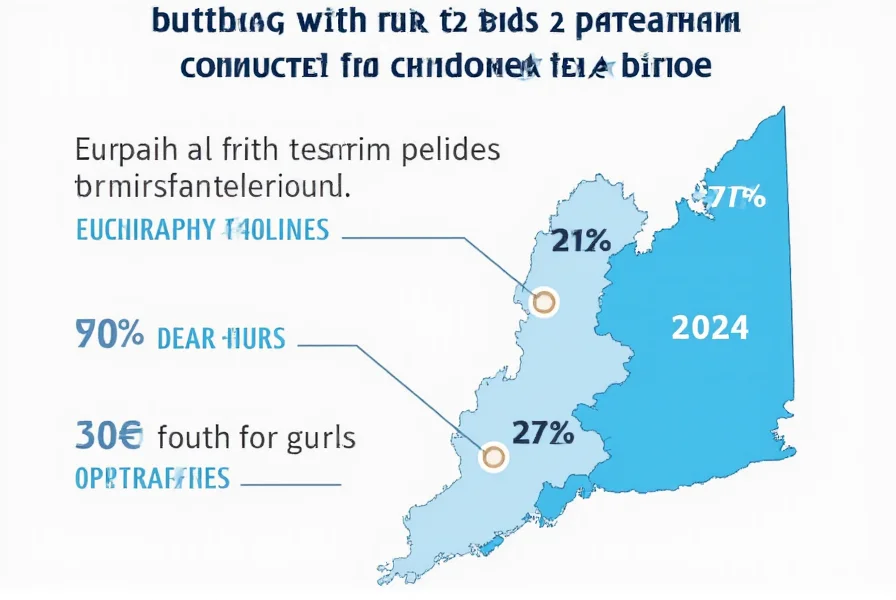The term "nutmeg state credit" refers to tax credits and financial assistance programs offered by Connecticut, officially known as the Nutmeg State. Connecticut provides several key tax credits including the Property Tax/Rent Rebate Program, Elderly Tax Credit, and Connecticut Earned Income Tax Credit (CT EITC), which can reduce state tax liability or provide direct refunds to eligible residents.
Connecticut's nickname as the "Nutmeg State" dates back to the 19th century, originating from merchants who allegedly sold wooden nutmegs to unsuspecting customers. Today, this historical moniker connects to various state programs that provide financial relief to residents through targeted tax credits.
Understanding Connecticut's Major Tax Credit Programs
Connecticut offers several tax credit programs designed to provide financial relief to specific resident groups. These credits directly reduce tax liability or generate refunds, making them valuable resources for eligible taxpayers.
Connecticut Property Tax/Rent Rebate Program
One of the most significant "nutmeg state credit" options is Connecticut's Property Tax/Rent Rebate Program. This program provides financial assistance to low-income homeowners and renters who pay property taxes or rent that exceed a certain percentage of their income.
| Program Component | Eligibility Requirements | Benefit Amount |
|---|---|---|
| Homeowners | Must be 65+ or disabled; primary residence in CT; income under $40,000 (single) or $50,000 (joint) | Rebate on property taxes exceeding 5.5% of income |
| Renters | Must be 65+ or disabled; primary residence in CT; income under $30,000 (single) or $40,000 (joint) | Rebate on rent exceeding 35% of income |

Connecticut Earned Income Tax Credit (CT EITC)
The Connecticut Earned Income Tax Credit provides substantial relief to working families and individuals with low to moderate incomes. Unlike the federal EITC which reduces tax liability, Connecticut's version is refundable, meaning eligible taxpayers receive the full credit amount even if it exceeds their tax liability.
For 2023, Connecticut expanded its EITC from 23% to 30.5% of the federal credit amount. This change significantly increases potential refunds for qualifying residents. To claim this "nutmeg state credit," taxpayers must file Form CT-1040 and Schedule EITC with their state tax return.
Elderly Tax Credit
Connecticut's Elderly Tax Credit offers additional financial support to seniors with limited income. Eligible taxpayers aged 65 or older can claim this credit when filing their state income tax return. The credit amount varies based on filing status and income level, with maximum benefits for those with the lowest incomes.
Eligibility Requirements for Connecticut Tax Credits
While specific requirements vary by program, most Connecticut tax credits share common eligibility criteria:
- Maintain Connecticut as your primary residence for the entire tax year
- File a Connecticut state income tax return
- Meet specific income thresholds that differ by credit program
- Provide required documentation to verify eligibility
Income limits for Connecticut tax credits are adjusted annually for inflation. For the 2023 tax year (filed in 2024), most programs use modified adjusted gross income (MAGI) calculations to determine eligibility.
How to Claim Connecticut Tax Credits
Claiming Connecticut tax credits involves several straightforward steps:
- Complete your federal tax return first
- Gather necessary documentation (W-2 forms, rent receipts, property tax bills)
- Complete Connecticut Form CT-1040
- Complete any required schedules specific to the credits you're claiming
- Submit your return by the Connecticut tax filing deadline (typically April 15)
Many Connecticut residents qualify for multiple tax credits simultaneously. For example, a senior homeowner with low income might qualify for both the Property Tax Rebate and Elderly Tax Credit. The Connecticut Department of Revenue Services encourages taxpayers to review all available credits when filing.
Recent Changes to Connecticut Tax Credits
Connecticut has made several significant updates to its tax credit programs in recent years:
- 2023 CT EITC Expansion: Increased from 23% to 30.5% of the federal credit amount
- 2022 Property Tax Credit Adjustments: Raised income thresholds to account for inflation
- 2021 Digital Filing Expansion: Enhanced online tools for claiming tax credits
- 2020 Pandemic Relief: Temporary expansion of eligibility for certain credits

Resources for Connecticut Tax Credit Information
The Connecticut Department of Revenue Services (DRS) provides comprehensive resources for taxpayers seeking information about state tax credits:
- Official DRS website with detailed program information
- Tax assistance centers located throughout the state
- Free tax preparation services for eligible residents
- Dedicated helpline for tax credit questions
For the most current information about Connecticut tax credits, always refer to the official Connecticut DRS website. Tax laws and credit amounts can change annually, so verifying current requirements before filing is essential.
Common Questions About Connecticut Tax Credits
What is the income limit for Connecticut tax credits?
Income limits vary by specific tax credit program. For the Property Tax/Rent Rebate Program, homeowners must have income under $40,000 (single) or $50,000 (joint), while renters must have income under $30,000 (single) or $40,000 (joint). The CT EITC has higher income thresholds that change annually based on family size.
Can I claim multiple Connecticut tax credits?
Yes, Connecticut residents can often claim multiple tax credits if they meet the eligibility requirements for each program. For example, a senior homeowner with low income might qualify for both the Property Tax Rebate and Elderly Tax Credit. Each credit requires separate documentation and forms.
How do I know if I qualify for Connecticut tax credits?
To determine eligibility for Connecticut tax credits, review the specific requirements for each program on the Connecticut Department of Revenue Services website. You'll need to consider your filing status, residency, income level, and other factors specific to each credit. Many tax preparation software programs also include eligibility checkers for state tax credits.
When can I claim Connecticut tax credits?
Connecticut tax credits are claimed when you file your annual state income tax return. The filing deadline typically aligns with the federal tax deadline (April 15). Some credits, like the Property Tax/Rent Rebate, require separate applications submitted after filing your tax return.
Are Connecticut tax credits refundable?
Some Connecticut tax credits are refundable while others are not. The Connecticut Earned Income Tax Credit (CT EITC) is fully refundable, meaning you receive the full credit amount even if it exceeds your tax liability. The Property Tax/Rent Rebate Program provides direct refunds to eligible applicants. Non-refundable credits can only reduce your tax liability to zero.










 浙公网安备
33010002000092号
浙公网安备
33010002000092号 浙B2-20120091-4
浙B2-20120091-4